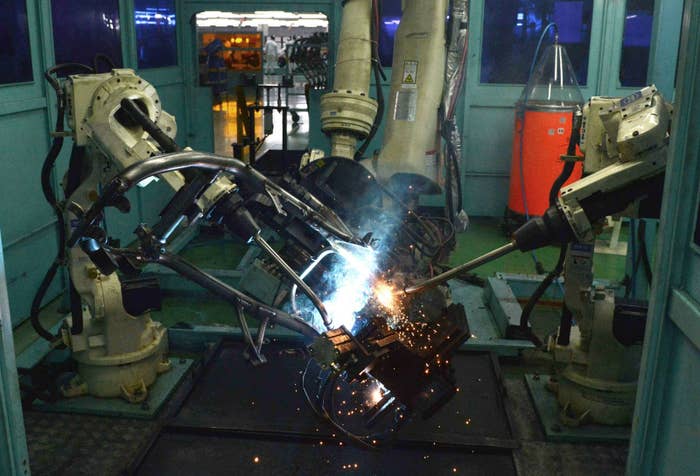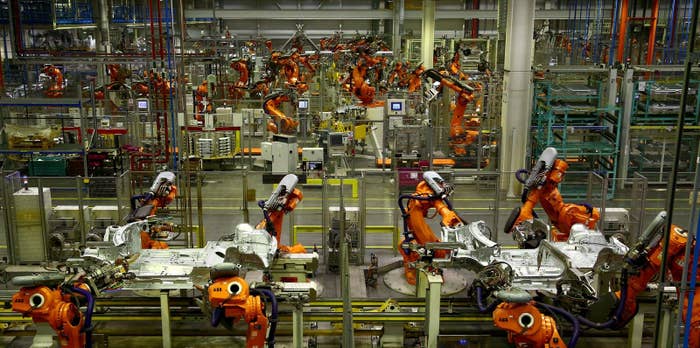
Every new robot added to an American factory in recent decades reduced employment in the surrounding area by 6.2 workers, according to a new study released by the National Bureau of Economic Research.
Researchers worked to separate the impact of robots from other big-picture economic trends that hit the US workforce in the same period, like imports from China and Mexico, computer software replacing office work, and offshoring. With all that taken into account, they estimated that for every one robot per thousands workers in a given area of the country, the employment rate went down by .2-.3 percentage points, and wages fell by between .25 and .5 percent.
"We see negative effects of robots on essentially all occupations, with the exception of managers," wrote economists Daron Acemoglu of MIT and Pascual Restrepo of Boston University in the study. "Predictably, the major categories experiencing substantial declines are routine manual occupations, blue-collar workers, operators and assembly workers, and machinists and transport workers."

The authors found smaller, but still negative effects on employment and wages in construction, business services, and retail.
According to estimates from the International Federation of Robotics, there are currently between 1.5 and 1.75 million industrial robots in operation, a number that could increase to 4 to 6 million by 2025, with the majority in the auto industry and electronics industry.
The paper focused exclusively on fully autonomous machines that don't require human operators and that can be programmed to perform tasks — such as welding, assembling, handling materials, or packaging. (Elevators and coffee makers don't qualify as industrial robots, for example, because they can't be reprogrammed and they require human operation.)
"We view our paper as a first step in a comprehensive evaluation of how robots will affect, and are already affecting, the labor market equilibrium," the authors wrote, adding that the findings are "somewhat surprising, especially because they indicate a very limited set of offsetting employment increases in other industries and occupations."
Outside Your Bubble is a BuzzFeed News effort to bring you a diversity of thought and opinion from around the internet. If you don’t see your viewpoint represented, contact the curator at bubble@buzzfeed.com. Click here for more on Outside Your Bubble.
